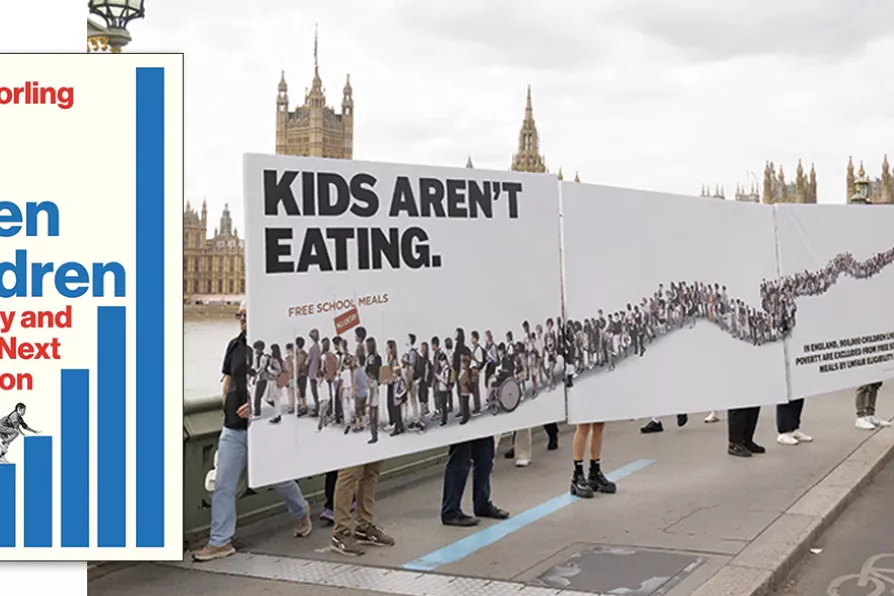RITA DI SANTO draws attention to a new film that features Ken Loach and Jeremy Corbyn, and their personal experience of media misrepresentation

 STATING THE OBVIOUS: The Food Foundation protest in Westminster, last September, with their reimagining of a Tory political poster aiming of getting politicians to commit to extending access to Free School Meals, as 900,000 children living in poverty are not eligible for the scheme
STATING THE OBVIOUS: The Food Foundation protest in Westminster, last September, with their reimagining of a Tory political poster aiming of getting politicians to commit to extending access to Free School Meals, as 900,000 children living in poverty are not eligible for the scheme
Seven Children — inequality and Britain's next generation
by Danny Dorling
Hurst £14.99
THIS book takes a novel approach to examining how one in three children live in poverty in the sixth-richest country in the world. That country is the UK.
Building on his previous book, Shattered Nation, Dorling drills down to see how seven strata of British children are affected by the poverty and inequality so rampant here.

Our housing crisis isn’t an accident – it’s class war, trapping millions in poverty while landlords and billionaires profit. To solve it, we need comprehensive transformation, not mere tokenistic reform, writes BECK ROBERTSON

PAUL DONOVAN is fascinated by a deep dive into contemporary social crises, that examines how they are manipulated by elites

In the conclusion of his two-part article, PETER MERTENS reveals that while global military spending hits $2.7 trillion with European arms company profits soaring 1,000%, €1 invested in hospitals creates 2.5 times more jobs than weapons











